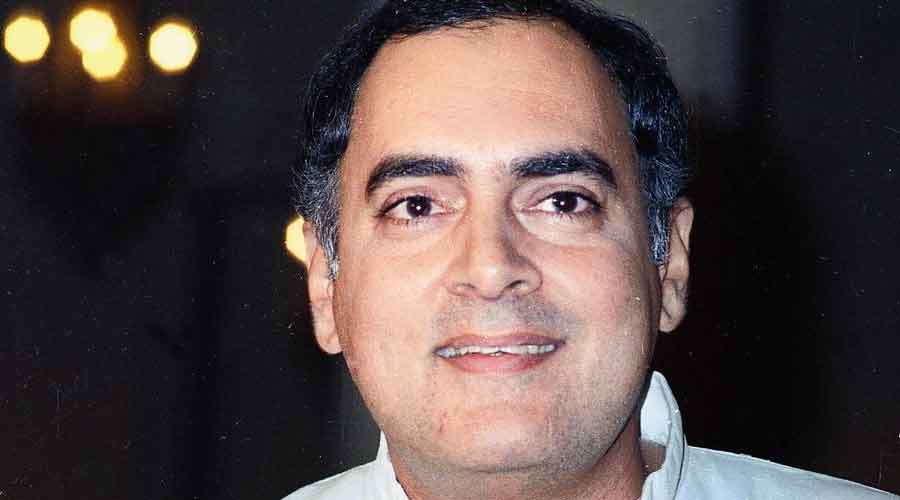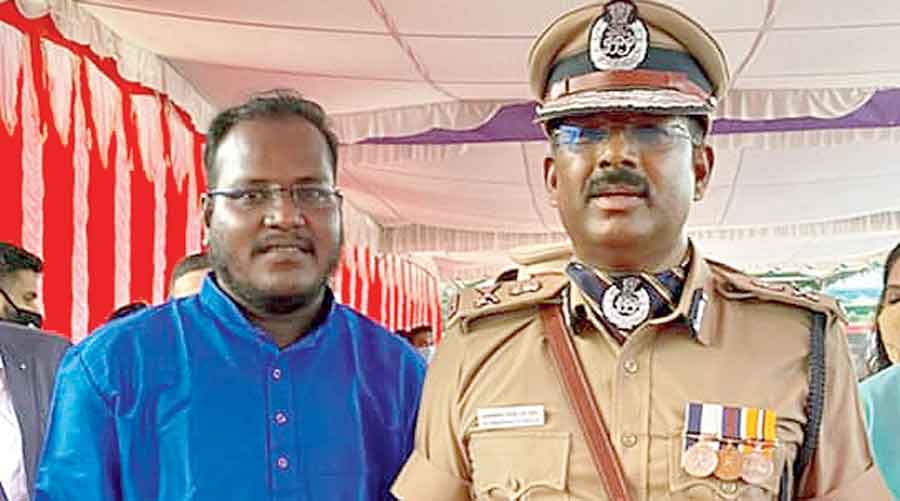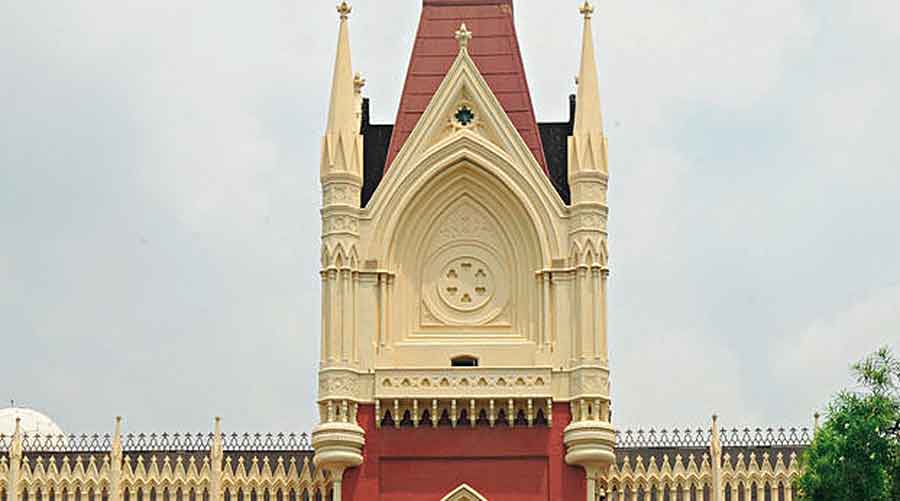When decorated IPS officer Prateep V. Philip retired on September 30, he wore not just the President’s Medal and other badges of honour he had won in his distinguished 34-year career.
Pride of place in his regalia belonged to a bloodstained police cap that looked all of its 30 years, contrasting with his otherwise gleaming uniform, and a “name badge” that gave his rank as assistant superintendent of police (ASP) rather than the director-general of police (DGP) he was retiring as.
Philip had moved court to have the old cap and name tag returned to him from CBI custody as his “last professional wish”.
To the officer, these two held “immense sentimental value”, being “a reminder of the call of duty” and symbolising his “blood, sweat and tears” from a day that had traumatised the nation and nearly cost him his life.
It was these two that Philip had worn on May 21, 1991, on assignment to protect former Prime Minister Rajiv Gandhi at an election meeting in Sriperumbudur, which fell in Kancheepuram district where he was ASP.

Rajiv Gandhi. File photo
The bloodstain on the top surface of the cap was caused by the blast carried out by an LTTE suicide bomber who assassinated Rajiv and caused grievous injuries to Philip, whose memory he still carries in the form of steel plates in his body. The explosion wrenched the name badge from his uniform.
The CBI special investigation team (SIT) that probed the assassination recovered the badge and the cap from the blast scene and marked them as exhibits for the trial. They stayed in possession of the CBI-SIT since then.
A few weeks before his retirement on September 30, Philip, then DGP (training), Police Training College, Chennai, filed a petition with the court of the additional sessions judge, Chennai, under Section 452 of the CrPC which deals with “disposal of property at conclusion of trial”.
He requested an “order for the delivery of the petitioner’s cap and name badge marked as M.O. (material object) 38 and M.O. 39 in C.C. (criminal case) No. 3/1992 to the petitioner”.
His counsel — TV journalist turned lawyer Sanjay Pinto and Vidya Pinto — told the court that Philip wanted the old cap and name badge back because to him, they symbolised the call of duty.
Philip’s petition underlined that the trial court had delivered its judgment in the assassination case on January 28, 1998, and the convicts and respondents had subsequently exhausted all their appeals in the Supreme Court. The CBI-SIT therefore no longer needed to hold on to the cap and the name tag, he argued.
“The petitioner, who faced a near-death experience in the line of duty, wishes to take back his bloodstained cap and name badge which are his personal belongings and are of immense sentimental value, a reminder of the call of duty during his formative years in the service of the nation and quite literally symbolise his blood, sweat and tears over 34 years of his professional career,” the petition said.
“It is the petitioner’s wish to wear his cap and name badge on his last day of service. The respondent can have no objection to the petitioner’s legitimate and emotional plea which is in the nature of a dedicated patriotic police officer’s last professional wish.”
Philip’s legal team cited Supreme Court judgments that had said that property connected with an offence and seized by the police “ought not to be retained in the custody of the court nor the police for any time longer than what is absolutely necessary”.
On September 28, the first additional sessions judge, Chennai, T.C. Chandrasekaran, allowed Philip’s plea, declining “to deny a dedicated and patriotic police officer’s last professional wish”.
“It quite literally symbolises his blood, sweat and tears over 34 years of his professional career,” the judge said.
Philip could take the cap and badge back after depositing a bond for Rs 1 lakh, the court said, but must hand them back to the CBI-SIT by October 28.
The court’s 10-page order recorded the reply of the respondent (DSP, CBI-SIT, Chennai) that it had no objection to Philip’s plea provided he was directed to return the cap and name badge “after the date of his retirement”.
The court also referred to the investigations still being conducted abroad by the CBI’s multi-disciplinary monitoring agency (MDMA) since the Jain Commission’s final report two decades ago alleged a larger international conspiracy behind Rajiv’s assassination.
The order said that with these investigations “poised at a crucial stage” and “letters rogatory sent to Sri Lanka, UK and Thailand by this court”, there was “every likelihood that the material objects would be required for further proceedings” after the MDMA’s final supplementary report.
Saluting Philip’s “commendable and impeccable services”, the court wished him a “long, peaceful retirement life with all enthusiasm to serve society as earlier”.
Philip’s counsel Sanjay Pinto said: “The case has given me immense professional satisfaction.”
Philip held several sensitive positions and pioneered the concept of “friends of police” — a community policing initiative — in India. He won the Prime Minister’s Medal for Meritorious Service in 2003 and the President’s Medal for Distinguished Service in 2012.
Based on his life experiences, research and understanding, he has come out with a book of 3,333 maxims, titled Fillipisms.
On Thursday evening, he was given a warm farewell by senior police officers and others led by the Tamil Nadu DGP, C. Sylendra Babu.
Philip has been reticent about how close to death he had come on that fateful day 30 years ago, but veteran journalist Walter Scott, who had been a UNI correspondent covering that Sriperumbudur meeting, described the events to The Telegraph on Sunday.
“Rajiv first garlanded the statue of Mrs Indira Gandhi on the Sriperumbudur bypass road amid the noise of bursting crackers. He then drove down in a white Ambassador, seated next to the driver, from the main road to the dais on a kutcha road, waving to the crowd and smiling,” Scott said.
“The car stopped some 30ft from the dais. He (Rajiv) was wearing kurta-pyjamas with a long shawl draped over him. He got off the car to acknowledge the crowd. A girl started reading out a poem to him. And then there was a blast, sounding like a huge electric transformer explosion, and a ball of fire went up. Immediately, the entire place plunged into darkness and people started running helter-skelter.”
Scott had provided the first news flash, booking a trunk call from the Sriperumbudur post office to the UNI office in Chennai.
Twenty-six people were accused, convicted and handed the death sentence by the trial court. On appeal, the Supreme Court on May 11, 1999, acquitted one and confirmed the guilt of 25, upholding the death sentences of four and awarding life terms to three and lesser terms to the rest.
The four awarded the death sentence — Nalini, Santhan, Murugan and Perarivalan — went on further appeal and filed mercy petitions before the President. After long-drawn legal proceedings, their sentences were commuted to life. Thirty years after the assassination, the four are still seeking their release.











